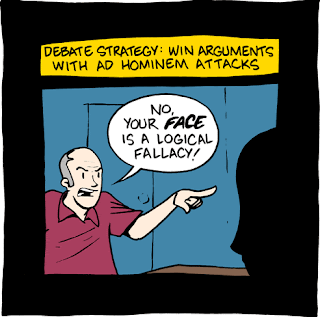An ethical dilemma is a situation that will often involve an apparent conflict between moral imperatives, in which to obey one would result in transgressing another. Below are some of the ethical dilemmas encountered by Psychologists(with real-life examples).
1. CONFIDENTIALITY
As a future Psychologist, one must value the essense of confidentiality, or keeping certain things private.
a.) You are a guidance counselor in an elementary school and a student shares to you a story on how he/she is getting bullied. The student has the right to privacy but if the case is affecting him too much(like he doesn't want to go to school anymore), you have to act upon it. Call the bully's attention, perhaps or higher school authority.
b.) If someone confessed to you on a murderous crime or a great high offense that he/she did, you may have to tell the authority if it appears as if he/she have the tendency to repeat the said action.
c.) If you encounter a patient whose having self-hate issues and likes to hurt herself/himself, you have to tend to him/her quickly in order to give him/her the help he/she needs. And if you think that your patient is near to having the idea to killing himself/herself, seek further assistance. Call the attention of the parents.
d.) Randomly, a person goes to you for advice on certain non-serious matters. Since the matter doesn't really need immediate attention, if the patient asks that you're session be confidential, then confidential it shall be.
e. ) When your patient is diagnosed with HIV, a serious illness, addiction, or rape. It should really remain confidential.
2. CONFLICT OF RELATIONSHIPS
With the physical and emotional closeness of a partnership, it is inevitable that there is sometimes conflict.
a.) Being a psychologist is a hard task. Giving the assistance needed by a patient requires a certain connection. And that connection sometimes transforms into affection. When a psychologist feels a pull towards his/her patients, then comes the conflict.
b.) Sometimes, the opposite happens. The patient falls in love with the psychologist, then comes the conflict.
c.) There is also a case where there is too much closeness between the patient and the psychologist that the latter forgets that the patient is a patient not a friend nor foe.
d.) There is also conflict when a patient seeks for advice yet does the opposite of the advice given.
e.) The tendency of having problems, arguments and/or misunderstanding between the patient and the psychologist is very high and it causes great conflict.
3. PAYMENT
When there is service offered, payment shall be given in return. Of course, everything comes with a price.
Examples:
a.) There are cases where the psychologist needs to drop the clients even if they have urgent needs, if they cannot comply with the payments.
b.) There are also cases where the psychologist have to exaggerate the patient's condition in order for the payment to be covered by the insurance.
c.) If the patient does not have enough money, the psychologist may negotiate with the patient in terms of payment. They can talk about payment options. The payment could be installment, one time big time, or paid in a different manner(through clothes, shoes, etc..) instead of cash.
d.) Sometimes, as a psychologist, you must understand the situation of your client. Including the client's financial status.
e.) Payment conflicts exists when the client gets into an accident, in a comma or dies before payment is settled. Therefore, the closest relative of the client must be the one to comply to the needed payment.
 4. FORENSIC PSYCHOLOGY
4. FORENSIC PSYCHOLOGY
It is the interaction between psychology and the justice system.
Examples:
a.) A forensic psychologist must not take sides.
b.) When asked to be a witness in court, one must of course, say only the truth and nothing but the truth.
c.) Sometimes, the confidentiality of the client gets lost under some circumstances in the court.
d.) Psychologists often have difficulty being a witness against their client.
e.) If the client asks the psychology to be present in the client's hearing, the psychologist must comply, for support and for other reasons.














